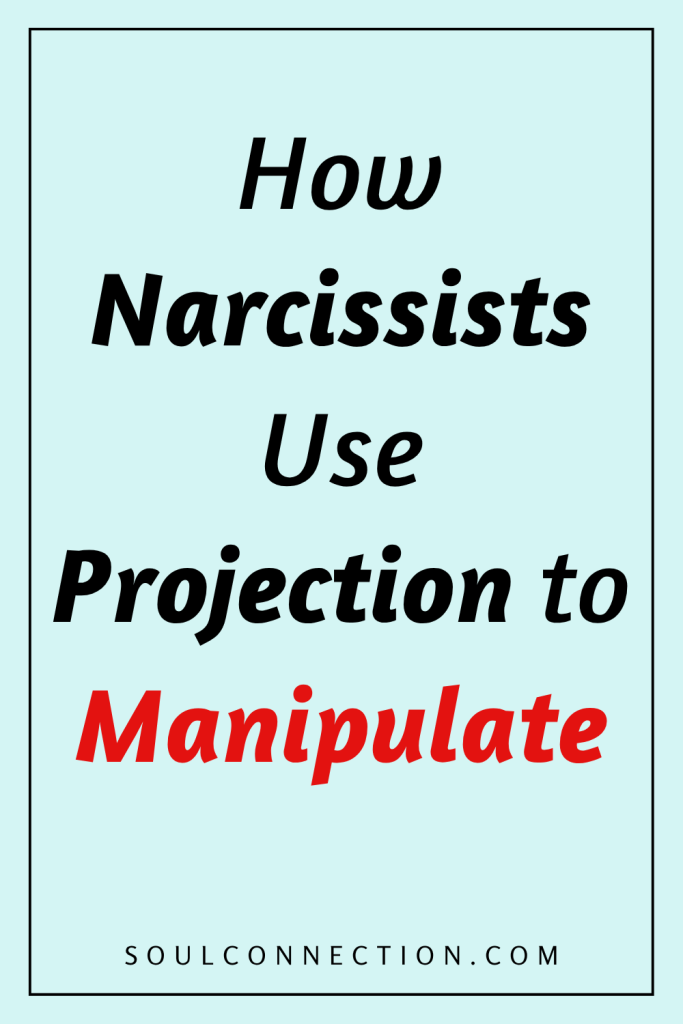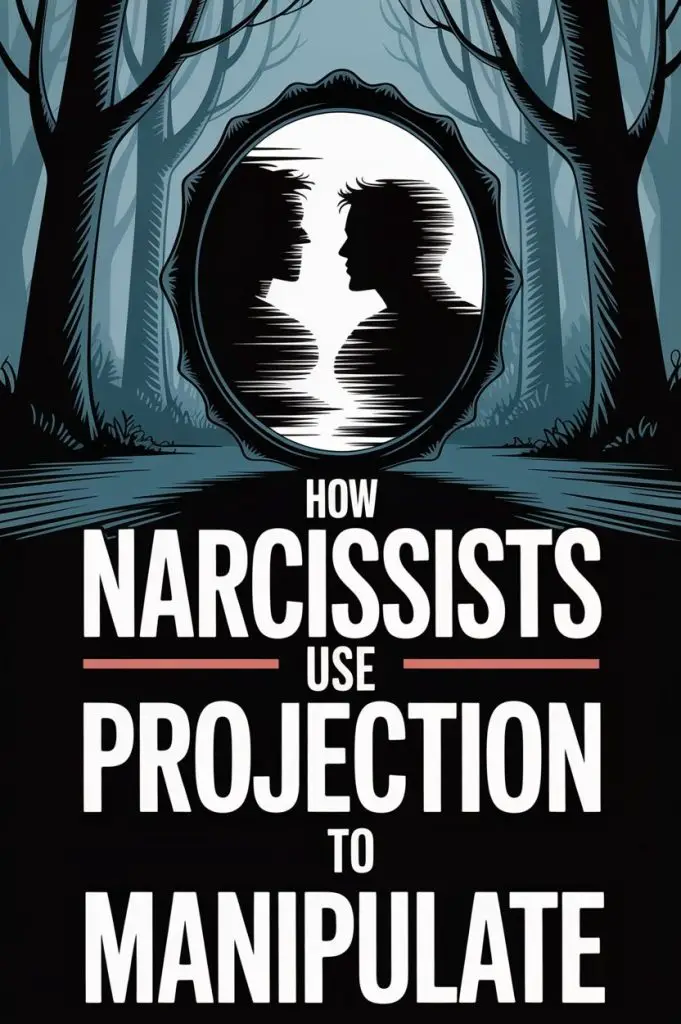Briefly, before we go running for the hills: narcissists aren’t magic. They can’t read your mind or turn water into wine.
But they are Olympic-level experts at a particular party trick called projection—a psychological sleight of hand that’ll leave you dazed and clutching your self-esteem like the last Tim Tam in the packet.
What’s really going on behind that “it’s not me, it’s you” routine? How do narcissists twist reality and, more importantly, how can you keep your sanity when someone starts tossing emotional hot potatoes your direction?
Time to grab your metaphorical raincoat.
The Projection Playbook Explained
Imagine you’ve just asked your partner why they never put their phone down at dinner. Suddenly, you’re being accused of being “obsessed” with your phone, or maybe even “controlling.” Your head spins.
Did you miss a memo? Are you living in a parallel universe? Welcome to projection: when someone offloads their own feelings, motives, or behaviors onto you.
Projection isn’t unique to narcissists—everyone projects occasionally. But for a narcissist, it’s an entire operating system, not an occasional bug.
If their emotional closet has skeletons, they’ll try to stuff them into yours when you’re not looking.
Why Narcissists Lean on Projection
Narcissists have a fragile sense of self hiding behind all that bravado. Their egos are about as delicate as a house of cards in a wind tunnel. Admitting fault feels like existential peril.
When shame, guilt, or insecurity creeps in, projection is the escape hatch. “If I’m not the problem, I never have to look at myself,” their inner monologue insists.
Projecting keeps their self-image sparkling clean—at your expense. It’s not about logic or fairness; it’s about survival. If you’re confused, upset, or even apologizing for something you didn’t do, that’s a job well done in narcissist-land.
Classic Projection Scenarios
Some projection routines are as predictable as bad reality TV plot twists. Spotting them early can save you a lot of emotional whiplash.
Cheating accusations: The partner who can’t stop checking your phone for suspicious texts? Sometimes they’re the ones doing the dodgy texting. Narcissists often accuse others of their own betrayals.
Anger outbursts: If they’re constantly telling you to “calm down” while they stomp around like Godzilla, odds are good you’re experiencing projection. They can’t own their rage, so it becomes your alleged “overreaction.”
Playing the victim: When you point out hurtful behavior and suddenly you’re being told you’re “too sensitive,” “always starting drama,” or “making them feel bad,” your feelings are getting projected back as their grievances.
Control freakery: Your need for a little basic respect becomes “you’re just trying to control me!” Meanwhile, your every movement is being monitored or criticized. Coincidence? Not likely.
Emotional Confetti: The Fallout of Projection
Living with chronic projection feels like being pelted with emotional confetti. Except it’s not shiny and fun—it’s blame, shame, and self-doubt. Over time, victims start to question their own reality.
Maybe you are the jealous one. Maybe you are “too dramatic.” Gaslighting and projection go together like tea and biscuits: one confuses your memory, the other rewrites your character.
This emotional erosion isn’t just unpleasant—it’s dangerous. Your self-confidence takes a hit, your boundaries blur, and soon you’re apologizing for things you never did.
It’s a manipulative cycle designed to keep you off balance and pliable.
Spotting Projection in the Wild
Projection isn’t always delivered with a neon sign and a villainous mustache twirl. Sometimes it’s subtle.
You’ll notice a pattern: every time your partner feels threatened, you become the designated scapegoat.
Ask yourself:
- Are you constantly defending yourself against wild accusations?
- Do you feel like your partner’s negative traits are being stamped onto you?
- Is there a recurring pattern where you’re the “problem,” no matter the issue?
If you’re nodding along and fighting the urge to shout “It’s not me, it’s you!”—chances are, projection is at play.
How to Respond Without Losing Your Mind
Reacting to projection with logic is about as effective as trying to explain algebra to a goldfish. Narcissists aren’t looking for reason; they’re looking to dodge accountability.
Instead, try these approaches:
- Stay calm and detached. Don’t take the bait. “That’s not my experience,” works wonders when delivered with a shrug.
- Avoid arguing the projected point to exhaustion. You can’t “prove” you’re not jealous, controlling, or whatever today’s label is.
- Set boundaries like your life depends on it. “I’m not comfortable with that accusation. Let’s talk when things have cooled down.”
- Resist the urge to explain yourself endlessly. It’s a hamster wheel that leads nowhere.
Self-preservation isn’t selfish—it’s survival. If the conversation keeps circling around projection, sometimes the best answer is: don’t play.
When Projection Goes Public
Some narcissists aren’t content with private projection. They’ll rope in friends, family, or even colleagues, spinning a narrative where you’re the villain and they’re the hero.
That’s called “smear campaigning,” and it’s as fun as it sounds.
Reputational sabotage is projection’s evil twin. If you’re suddenly fielding awkward questions from friends about your “controlling behavior” or “anger issues,” check your perimeter. Someone’s been busy with their personal PR campaign.
The antidote? Keep your side of the street clean, and don’t rush to defend yourself to everyone. The people who know your character won’t be easily swayed by tall tales.
Self-Care for the Scapegoated Soul
Constant projection is exhausting. It’s tempting to try to “fix” things by being extra understanding or apologetic. The truth? You’re not responsible for someone else’s baggage.
Pep talk time: you are not the sum total of your partner’s accusations. Keep a written record of conversations if they’re spiraling into projection, or talk it out with a trusted mate for a reality check.
Therapy—either solo or with a non-narcissistic counselor—is worth its weight in gold. Sometimes you need an outside perspective to remind you that the sky is, in fact, blue, not chartreuse.
Find small ways to reinforce your own reality. Practice self-compassion, journal your actual feelings, and spend time with people who make you feel sane and seen.
Knowing When to Walk Away
Here’s the uncomfortable truth: you can’t out-logic, out-love, or out-patience someone’s narcissism. If life becomes an endless loop of projection and blame, it’s okay to put yourself first.
Staying in a relationship where projection is the main form of communication is like learning to love quicksand. The more you struggle, the deeper you sink.
Your needs, emotions, and reality matter. If those things are consistently invalidated, walking away isn’t weakness—it’s wisdom.
The Power of Your Own Mirror
Projection manipulation isn’t just about what the narcissist does—it’s about how you respond. Recognizing the game is half the battle.
Refusing to absorb someone else’s issues as your own? That’s how you win.
Let narcissists hold their own emotional baggage. You, on the other hand, deserve to travel light.


